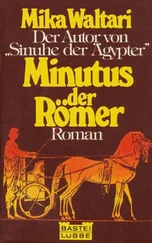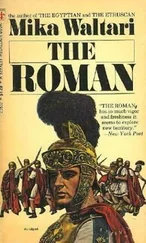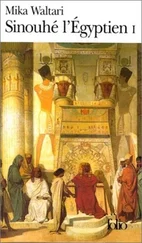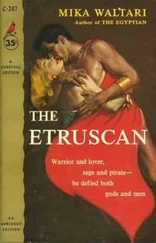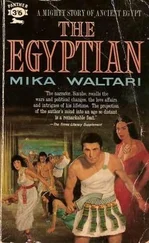Sinan could not indeed complete the bridge by the third day, when the Sultan and Grand Vizier arrived with the main army, but he explained ingeniously that the three days he asked for were to be reckoned from the time the Sultan reached the banks of the Drava. And when the Sultan saw that despite seemingly insuperable difficulties the work was really going forward, he did not question this new interpretation. He and the Grand Vizier, plainly dressed and with pointed helmets on their heads, made their way to the scene of operations attended by a few green-clad tsaushes. In this way they could judge for themselves which men worked hardest and behaved most creditably in moments of danger. And although Khosref-pasha, who now began to suspect that Sinan might succeed, hastened to sit in the younger man’s tent, study his plans, and issue orders right and left as if he were the true leader of the enterprise, the Sultan was not deceived. It was Sinan alone whom he watched, with an expressionless face, though never once during the work did he speak to him.
At the last moment the camels came up and also a number of trained elephants, which so far as I could see were of great service. Between their great ears sat the Indian mahouts looking like little monkeys, and the clever, ponderous beasts obeyed their every sign, walking in single file into the river, groping for foothold, and catching one another by the tail to form a living breakwater for the laborers. On their gilded tusks they lifted timbers that not ten men could move, and carried them easily to the place where they were needed. But Sinan the Builder said, “Those animals are more trouble than they’re worth; they splash about and get in everybody’s way. However, they amuse the Sultan and the janissaries and keep my workmen in a good humor. But your brawny brother Andy is worth ten elephants to me.”
I noticed that Andy had risen high in rank among the builders and was wearing the turban of a bimbash. But unable to sustain his new dignity he toiled away ax in hand, ever ready to raise and bear on his shoulders a log that the efforts of many men had not availed to shift. His feats inspired awe and fear, yet he seemed to me to lack the qualities needful for a bimbash, or captain of a thousand. He found it difficult to direct the work of others and preferred to tackle all awkward tasks himself, to demonstrate how he thought they should be done. Having watched his foolish behavior for some time I could no longer keep silence, and for the sake of our long-standing friendship I went up to him and said, “It’s unseemly for a bimbash to behave like a peasant in front of his subordinates, and you shame others of your rank by appearing with a sooty face and tarry hands. You’ve broken your line plume, and no bimbash ought to roll up his sleeves until he draws his sword in battle.”
But Andy answered, “This work is only temporary, and it really hurt me to watch how these fumbling Moslems handle an ax. And then Sinan begged me on his knees to help, and he’s a good fellow, whose only fault is to let you loiter about and make silly remarks.”
On the sixth day the bridge was finished, and for four days and nights the army crossed it in an unbroken stream, while the cautious Sinan watched to see that no excessive strain was placed upon it. Sultan Suleiman called Khosref-pasha and Sinan to his tent on the first evening of that march, together with their immediate assistants. Andy had therefore to wash his hands and don a red kaftan that Khosref- pasha had given him. But at this moment of triumph Sinan lost all his self-assurance, and was disconcerted when the janissaries ran at his heels loudly singing his praises and clashing their ladles against their cooking pots. When we reached the gorgeous awning that shaded the entrance to the Sultan’s tent, Sinan turned in his agony to Khosref- pasha and asked him point blank, “Dear father! An adoptive son has the same right of inheritance as other sons, has he not? And you acknowledged me as your son before all the builders, confirming it with the first sura?”
Khosref-pasha, beside himself with delight, tenderly embraced Sinan and assured him that a foster son inherited from the foster father and vice versa. We then entered the tent and Khosref-pasha kept his arm fondly about Sinan’s shoulders, to show that he was ready to share the honors of the undertaking with his dear son. At Suleiman’s right hand, in garments sparkling with precious stones, stood the Grand Vizier. He praised our achievement with eloquence, and the Sultan himself addressed a few words to Khosref-pasha and Sinan the Builder, assuring them of his special favor. But outside the tent the janissaries beat ever more enthusiastically upon their cooking pots, and at last Sinan could contain himself no longer. Drawing a paper from his bosom he unfolded it with trembling hands and began to read aloud the rewards that he had promised the janissaries and builders. When he had finished he looked the Sultan straight in the eye and said, “Lord, as you hear, the bridge will cost two million, two hundred thousand aspers in gifts alone, but in this I do not include the cost of materials, transport, and manufacture, nor that of forging, stone cutting, and other minor expenses. But my dear father Khosref has pledged his fortune that my word may be kept, and for my part I gladly sacrifice the inheritance he has promised me, for lack of other property. If I may judge from the noise outside I fancy the janissaries are impatiently awaiting their reward, and I beseech you to pay them at once the two million, two hundred thousand aspers. My father and I will then make out a joint receipt for the sum. I shall do my utmost to redeem my share of this, provided you will entrust me with profitable building works in the future.”
Khosref-pasha, crimson in the face, thrust Sinan the Builder violently from him and shrieked, “It is true that I recited the first sura when I adopted him as my son, but he wormed himself into my confidence with false pretenses and I cannot answer with my whole fortune for a madman’s promise. On the contrary I shall have him beheaded immediately.”
He raised his hand to smite his son Sinan, in the very presence of the Sultan, but fortunately he could not accomplish this disgraceful act, for at that moment a blood vessel burst in his brain and he sank powerless to the ground.
This lamentable incident was certainly our salvation, for it gave the Sultan time to recover from his amazement; the smoke-colored face regained its customary composure. Ibrahim had been anxiously watching his expression, but Suleiman lived up to his reputation for nobility and said only, “My small change seems likely to be exhausted before we reach even Buda. But we must give thanks to Allah that Sinan did not promise the janissaries the moon from heaven.”
Grand Vizier Ibrahim laughed quickly, and we all joined in as heartily as we might until even the Sultan smiled. Only Sinan the Builder was grave. The Sultan then ordered the Defterdar to distribute the rewards according to Sinan’s memorandum. He bestowed upon Sinan a splendid purse containing a thousand pieces of gold, while lesser sums were given to his assistants. I contrived to stand in so prominent a position as to receive ten gold pieces for my services as bridge builder, while Andy was given a new plume set in a jeweled clasp to replace his broken one, also a hundred gold pieces.
The highest reward went however to Khosref-pasha, for his discrimination-as the Sultan rightly said-in choosing the best man for the work. And Sinan was content that it should be so. But for a long time afterward, Khosref spoke thickly and gave orders by nods and signs, which Sinan interpreted as best suited him.
Once over the bridge the army divided and marched away by different routes toward the great plains of Mohacs, where Janos Zapolya, the ruler-elect of the Hungarian people, was to bring his forces to swell the Sultan’s army. Sinan and I traveled in our horse litter along the Danube, above whose rapids nearly eight hundred vessels had been assembled to carry guns, ammunition, forage, and provisions up the river; we moved level with these transports.
Читать дальше

